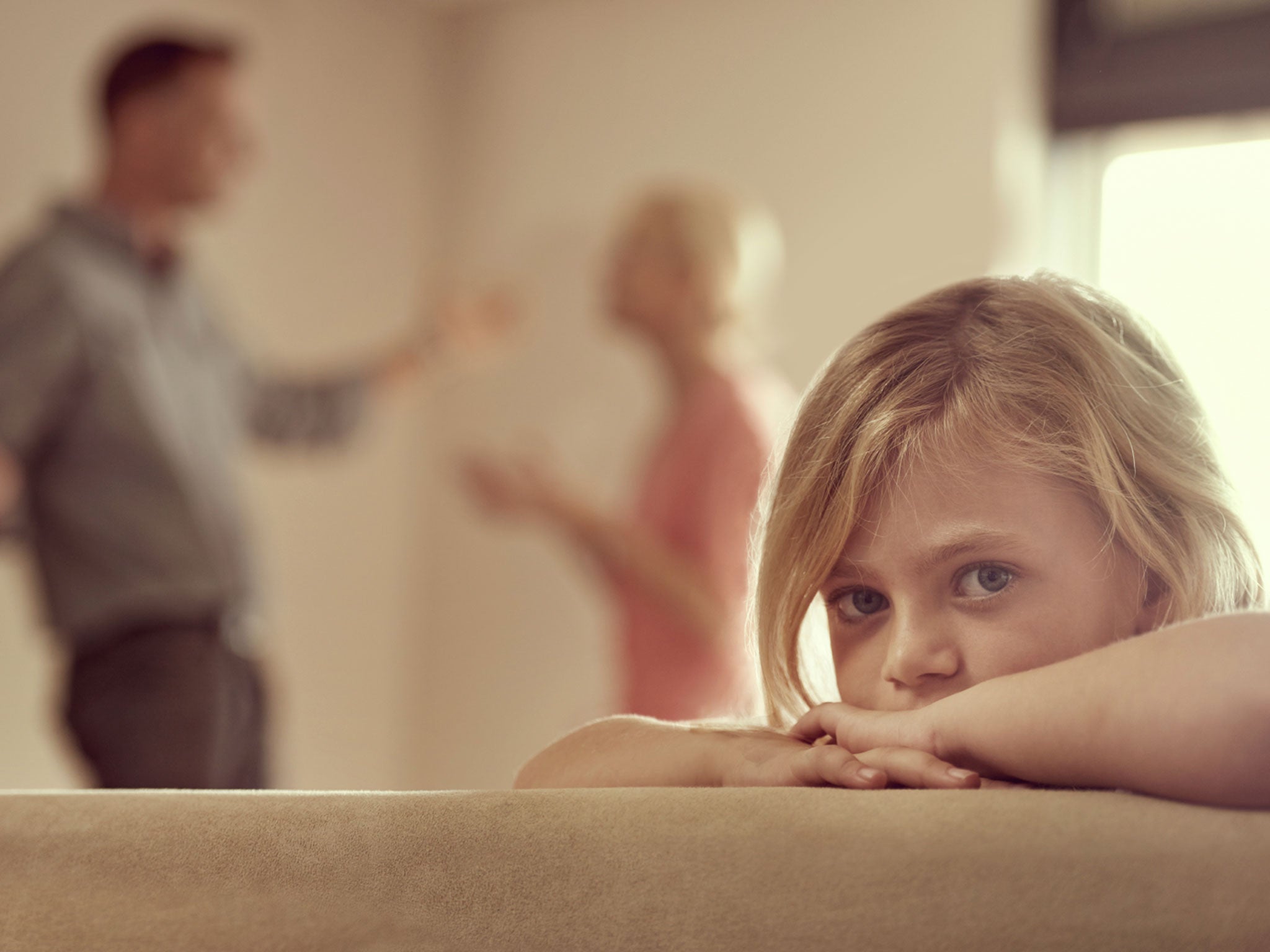Arguing parents can damage a child's life chances, study suggests
Some children can become suicidal, researchers said

Your support helps us to tell the story
From reproductive rights to climate change to Big Tech, The Independent is on the ground when the story is developing. Whether it's investigating the financials of Elon Musk's pro-Trump PAC or producing our latest documentary, 'The A Word', which shines a light on the American women fighting for reproductive rights, we know how important it is to parse out the facts from the messaging.
At such a critical moment in US history, we need reporters on the ground. Your donation allows us to keep sending journalists to speak to both sides of the story.
The Independent is trusted by Americans across the entire political spectrum. And unlike many other quality news outlets, we choose not to lock Americans out of our reporting and analysis with paywalls. We believe quality journalism should be available to everyone, paid for by those who can afford it.
Your support makes all the difference.Children who witness conflict between their parents have poorer long-term life chances and can become suicidal in extreme cases, a new study has warned.
Arguments between parents can affect children, even if they are no longer in a relationship, according to researchers at the University of Sussex commissioned by the Department of Work and Pensions.
Unresolved tension between parents in particular has an impact on long-term mental health and wellbeing of a child.
The Early Intervention Foundation (EIF), a charity which worked with the university on the research, warned that positive relationships between parents is neglected by maternity, children’s and family services.
The charity said programmes run outside of the UK show that it is possible to improve relationships. This in turn had a positive outcome for children.
The team found parents engaged in conflict are more aggressive towards their children and less responsive to their needs.
Children who are exposed to severe, long-term and ongoing conflict between their parents can become aggressive, hositle and violent, while others can develop low self-esteem, anxiety and depression.
Researchers said that some children can even become suicidal.
A child’s academic performance can also suffer, which affects the development of their social and emotional skills.
Carey Oppenheim, EIF Chief Executive, said: “Children of all ages can be affected by inter-parental conflict.
“[It] is vital to ensure we avoid missing a crucial piece of the jigsaw in improving children’s mental health and future life chances.”
Professor Gordon Harold, from the School of Psychology at the University of Sussex, said that a growing body of evidence suggest that relationships between parents is “one of the strongest influences on children’s long-term mental health, wellbeing and future life chances.”
“This will not only affect today’s generation of children, but tomorrow’s generation of parents.”
Join our commenting forum
Join thought-provoking conversations, follow other Independent readers and see their replies
Comments